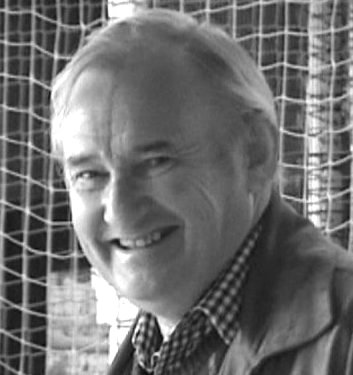cas/definition.php (people or term)

Peter Allen
Urban Modeling
Peter Allen is a Professor in the field of complexity and system theory, often relating his work to architecture and urban design.
.
Allen holds a PhD in Theoretical Physics and is an Emeritus Professor at Cranfield University in England. Between 1970 and 1987 he worked with Professor Ilya Prigogine on research that led to the establishment of Complexity Science.
He has written and edited several texts about socio-economic modeling and complexity, as well as over 200 articles about regional science, urban science, economics, physics, and system theory. He is editor in chief of the journal Emergence: Complexity and Organization http://journal.emergentpublications.com/
Much of his work and studies concerns the idea of emergence. He has ideas about how the best systems are the ones that are not created wholly by mankind. He says this because humans do not have the capacity to fully understand complexity, therefore letting us design complex systems is a quite inefficient way of designing.
He views cities as complex systems classified by coevolutionary behavior. Because of this he sees cities change overtime, adapt and maintain diverse strategies, sub- optimal behaviors, imperfect information, and an overarching creativity from humans. He questions the quick and rapid development of urban cityscapes as he hopes his research will help increase sustainability of cities and make an impact towards the climate change crisis. He also looks to use agent based modeling in order to further research and innovation in the fields of Living and/or housing, access to food, mobility of agents within a system, and the energy expended to sustain a system.
Key Talk/Text: https://www.complexurban.com/video/183/
This is a link to a lecture given by Peter Allen at the Manchester School of Architecture in 2016. In this lecture he talks about Understanding Urban Transformations through Data as well as the Evolving Complexity of Cities towards the goal of sustainability.
Text adapted from a contribution by Devin Palmberg, Iowa State University, 2021
Cite this page:
Wohl, S. (2022, 18 May). Peter Allen. Retrieved from https://kapalicarsi.wittmeyer.io/definition/peter-allen
Peter Allen was updated May 18th, 2022.
Nothing over here yet
Navigating Complexity © 2015-2025 Sharon Wohl, all rights reserved. Developed by Sean Wittmeyer
Sign In (SSO) | Sign In
Related (this page): Urban Modeling (11),
Section: people
Non-Linearity Related (same section): Related (all): Urban Modeling (11, fields), Resilient Urbanism (14, fields), Relational Geography (19, fields), Landscape Urbanism (15, fields), Evolutionary Geography (12, fields), Communicative Planning (18, fields), Assemblage Geography (20, fields), Tipping Points (218, concepts), Path Dependency (93, concepts), Far From Equilibrium (212, concepts),
Nested Orders Related (same section): Related (all): Urban Modeling (11, fields), Urban Informalities (16, fields), Resilient Urbanism (14, fields), Self-Organized Criticality (64, concepts), Scale-Free (217, concepts), Power Laws (66, concepts),
Emergence Related (same section): Related (all): Urban Modeling (11, fields), Urban Informalities (16, fields), Urban Datascapes (28, fields), Incremental Urbanism (13, fields), Evolutionary Geography (12, fields), Communicative Planning (18, fields), Assemblage Geography (20, fields), Self-Organization (214, concepts), Fitness (59, concepts), Attractor States (72, concepts),
Driving Flows Related (same section): Related (all): Urban Datascapes (28, fields), Tactical Urbanism (17, fields), Relational Geography (19, fields), Parametric Urbanism (10, fields), Landscape Urbanism (15, fields), Evolutionary Geography (12, fields), Communicative Planning (18, fields), Assemblage Geography (20, fields), Open / Dissipative (84, concepts), Networks (75, concepts), Information (73, concepts),
Bottom-up Agents Related (same section): Related (all): Urban Modeling (11, fields), Urban Informalities (16, fields), Resilient Urbanism (14, fields), Parametric Urbanism (10, fields), Incremental Urbanism (13, fields), Evolutionary Geography (12, fields), Communicative Planning (18, fields), Rules (213, concepts), Iterations (56, concepts),
Adaptive Capacity Related (same section): Related (all): Urban Modeling (11, fields), Urban Informalities (16, fields), Tactical Urbanism (17, fields), Parametric Urbanism (10, fields), Landscape Urbanism (15, fields), Incremental Urbanism (13, fields), Evolutionary Geography (12, fields), Feedback (88, concepts), Degrees of Freedom (78, concepts),
